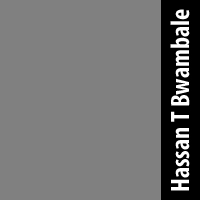
Dear reader, I would like to inform you that among the things that Islam safeguards is your property. Although not all of Prophet Muhammad's (PBUH) contemporaries believed in his message, when they needed to deposit their wealth and property for safe keeping, they would entrust them to the Prophet (PBUH) because they trusted him completely. In fact, the people who attempted to assassinate the Prophet (PBUH) were among those who had deposited their belongings with him.
And so trustworthy was Muhammad (PBUH) that, before escaping to save his life, he assigned his cousin Ali the responsibility of returning the money and other properties to their rightful owners. He made sure everyone got his money and property back as an example of how serious it is to keep peoples' money and properties intact - even if they consider us enemies. It is a common problem that many people procrastinate or hide when it is time to pay back loans.
Due to the gravity of this issue and the dire consequences awaiting those who die before clearing their debts, I advise everyone with loans or debts to adhere to the Islamic guidelines on this subject, such as the following.
God Almighty says what can be translated as, "O you who believe! When you contract a debt for a fixed period of time, write it down. Let a scribe write it down in justice between you...." (2: 282). If anyone protests against signing a loan agreement under the pretext that he is your relative or friend, for example, then tell him it is a commandment of God to which we have to oblige.
Pay creditors on time
Abu Huraira (Prophet Muhammad's companion) narrated that Prophet Muhammad (PBUH) said, "Whoever borrows people's money (or any property) with the intention of paying back, Allah will pay back on his behalf (in other words, Allah will make it easy for him to pay back). But whoever borrows people's money with the intention of not paying it back, Allah will ruin him (in other words, whatever he does with that property or money, he will not be blessed" (Imam Al-Bukhari 2,387).
This hadith warns us against borrowing people's money or any valuable asset if we are do not intend to pay it back. If you continue taking people's property illicitly, your endeavors will be consigned to failure. However, if your intention is good but you have difficulty to pay back, Allah will find an easy way for you. Therefore, you should be extra cautious about taking loans. You should only borrow money when you need to and when you are certain that you can pay it back.
The deceased with debts
Jaber bin Abdullah (Prophet Muhammad's companion) said, "Prophet Muhammad (PBUH) would not pray for anyone who died before clearing his debts. Once a dead person was brought to him to perform a funeral prayer and the Prophet asked, 'Is he indebted to anyone?' His companions responded in the affirmative stating that he owed someone two dinars. Then the Prophet (PBUH) said, 'Pray for your fellow.'
Abu Qatadah said, 'I will pay the two dinars on his behalf, O Messenger of Allah.' After hearing that, Prophet Muhammad (PBUH) agreed to pray for that dead person. After the Prophet had gotten some money, he announced, what can be translated as, 'I am more entitled to fulfilling the rights of every believer than he himself. In so doing, anyone who leaves behind a debt, I will clear it on his behalf. Conversely, whatever wealth or property anyone leaves behind is for his heirs." (Albani and Muslim)
Indeed Prophet Muhammad (PBUH) came as mercy to all. Who would pay for those who leave behind debts, yet isn't interested in their inheritance? This is sheer evidence that he was a selfless, altruistic person beyond imagination. The story doesn't stop here; as Abu Qatadah assumed the responsibility of paying the two dinars that a dead person owed someone so that Prophet Muhammad (PBUH) would pray for him, the Prophet (PBUH) followed up to make sure that everyone got his rights.
The following day, he met Abu Qatadah and asked him, "What about the two dinars?" Abu Qatadah replied, "The man just died yesterday," alluding to the fact that he still needed some time to pay the money back. The next day, Prophet Muhammad (PBUH) approached him to enquire whether he had paid the two dinars. Abu Qatadah replied in the affirmative, to which Prophet Muhammad (PBUH) responded, "Now his skin is safe and tranquil from fire." (Imam Al-Bukhari 5, 383 and Muslim 867) Abu Qatadah felt sad that the indebted dead person wouldn't have the honor of Prophet Muhammad (PBUH) praying for him. He also hoped to please God by paying the debt of a dead person. How excellent is this attitude and love for each other, even when someone is dead!
Courtesy of the TIES Center, whose mission is to empower Kuwait's expats through social and educational services that promote a positive and productive role in society, and to facilitate opportunities for intra- and interfaith interactions that promote social solidarity. For more information, please call 25231015/6 or e-mail: [email protected]
By Hassan T Bwambale



